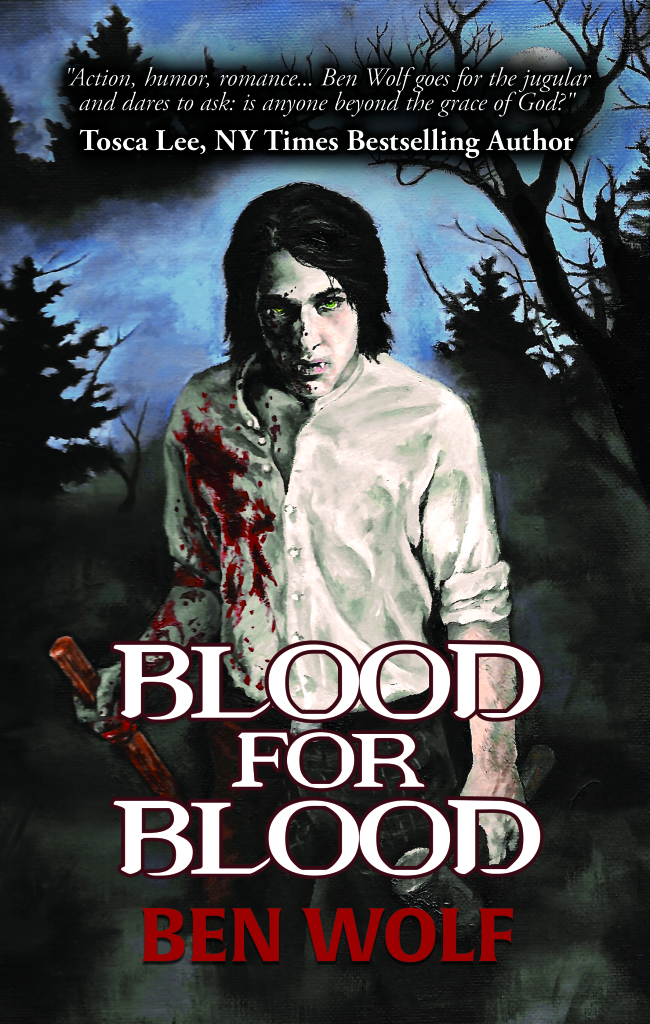
As I mentioned in my first post in this series, vampirism is diametrically opposed to everything God calls good in his Word. But in light of this distinct separation, how would a vampire who got saved navigate the vast chasm between his old existence and his newfound faith? Read on to find out my thoughts on the matter and to get a glimpse at some of the questions I considered when writing my debut novel, Blood for Blood.
You might be a vampire if…
…you hate sunlight?
Really, Raven had only one choice: charge forward. Even if he circled back to the back door he’d still have to run across an even longer stretch of sun-soaked lawn to get there. He had no idea how fast sunlight could turn him to ash, but it didn’t matter. If he didn’t make it inside, he’d perish anyway.
Front door it was.
Raven sprung forward, his strong legs plodding the earth. Twenty more steps and he’d be safe.
The burn started on the back of his neck and spread down to his legs.
Ten steps to go and he was running through a blazing oven.
Five and he realized he didn’t have time to open the door.
He lowered his shoulder and slammed into the door with all of his might. The hinges shrieked and the door thudded to the floor, kicking up a plume of dust. Raven rolled away from the sunlight that poured several feet into his home.
That’s when he noticed his robe had caught on fire.
Raven’s flesh boiled under his seared skin as he rolled around on the floor. He clawed at the robe and tore off one of the sleeves, searing his hands in the process. He ripped it off of his body and flung the robe away. It landed near a grand, curved staircase in a smoldering heap.
Raven cringed and stood to his feet, bare-chested, his body a patchwork of pale skin and charred black burns, but he’d survived.
– Excerpted from Chapter 12 of Blood for Blood, by Ben Wolf
Another hallmark of classic vampirism is sensitivity to sunlight, often to the point of lethality. With the exception of the blood-drinking fairies in the Twilight series, almost every other vampire in popular culture has been susceptible to sunlight. (Blade gets a pass because he doesn’t sparkle.)
This one is so commonplace throughout vampire lore that it’s not even worth debating. Its origins, however, are a bit more up for grabs. I’m of the opinion that the curse of vampirism’s roots hearken back to biblical principles by way of directly opposing them. Under that assumption, certain Bible verses take on a different meaning.
Here’s a list of dozens of references to darkness in the Bible. What’s interesting to me is that the majority of them also include references to light, as if to draw a strong distinction between these two contrary elements. In John 3:19-21 (ESV), Jesus gives us a great example of this:
“And this is the judgment: the light has come into the world, and people loved the darkness rather than the light because their works were evil. For everyone who does wicked things hates the light and does not come to the light, lest his works should be exposed. But whoever does what is true comes to the light, so that it may be clearly seen that his works have been carried out in God.”
The apostle Paul echoes and reinforces this concept in 1 Thessalonians 5:5 (ESV):
For you are all children of light, children of the day. We are not of the night or of the darkness.
Based on this clear differentiation between light and darkness, and between night and day, it makes sense that vampires, who are borne out of total rebellion against God and His ways, would operate in the night and thrive in darkness. What’s more, we know from John 1:5 (ESV) that “The light shines in the darkness, and the darkness has not overcome it.” In other words, light prevails, and so does God.
In reading these verses, the prognosis for folks who walk in darkness sounds hopeless. At least it does until we read John 8:12 (ESV):
Again Jesus spoke to them, saying, “I am the light of the world. Whoever follows me will not walk in darkness, but will have the light of life.”
In other words, there’s hope, even for someone as lost as a vampire. Well, maybe. It kind of depends on whether or not you think a vampire has a soul (see Part 10 of this series for more on that). But even then, we do serve a God who can do the impossible.
Suppose a vampire got saved, like Raven does in Blood for Blood. Would he be able to go out into the sun? If so, how long do you think it would take? Or would he, after being saved, still grapple with being unable to go out during the daytime?
Share your comments below, and click on the cover image to get your own copy of Blood for Blood and find out whether or not Raven can overcome his vampiric aversion to sunlight.



Trackbacks/Pingbacks